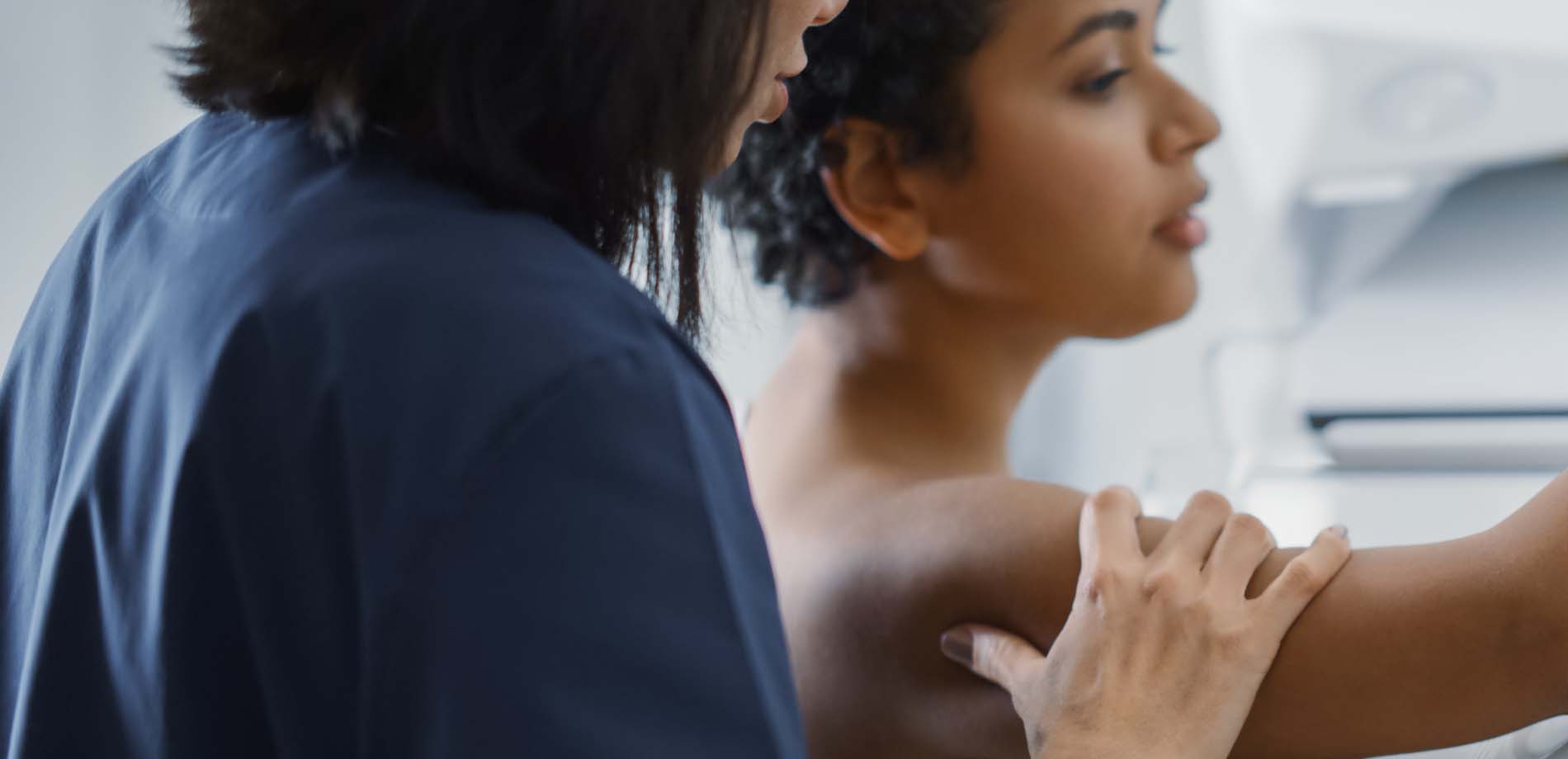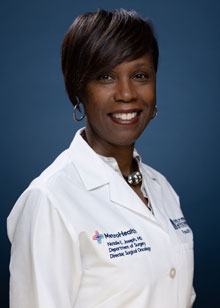Getting an annual mammogram is one of the best ways to detect breast cancer early. But if you’re one of the many women who have dense breasts, you may need more testing.
A new rule about mammograms from the FDA just went into effect. Now, your results will include information on how dense your breasts are. Having dense breasts may mean you’ll need further testing. Why? We asked Natalie Joseph, MD, Division Director of Surgical Oncology and Director of the Center for Breast Health for MetroHealth, to explain.
Click the tabs below to learn more:
- What is Breast Density?
- How Will I Know if I Have Dense Breasts?
- Do I Need Additional Screening if I Have Dense Breasts?
Breast density is a measurement of the amount of fibrous and glandular tissue that you have in your breasts compared to the amount of fatty tissue. Having dense breast tissue is normal, and approximately 50% of women are identified as having dense tissue. However, having dense breast tissue is associated with an increased risk of breast cancer. If you have more dense tissue than fatty tissue, it may be harder to detect cancer on a screening mammogram as dense tissue is harder to see through. Density is not related to breast size at all. Women with all sizes of breasts can have dense breast tissue. It is partly genetic, and your density may also change with age.
The radiologist who reads your mammogram will include a report about your breast density. The report should give you an indication of how dense your breasts are. There are four categories of breast density:
- Category A: Mostly fatty tissue (not dense)
- Category B: Some scattered areas of dense breast tissue
- Category C: More dense tissue that fatty tissue, making it hard to see small irregularities or tumors.
- Category D: Extremely dense, to the point that it makes it hard to see even larger tumors.
About half of women in the U.S. who get mammograms are in category C or D.
If you are identified as having breast tissue, you may be a candidate for additional screening tests such as breast ultrasound or MRI. We recommend that you talk to your physician or health care provider to determine what is best for you.
At MetroHealth, we offer people with dense breasts a supplemental screening test called Automated Breast Ultrasound (ABUS).
This screening helps us get a look inside dense breast tissue to find any potential changes that could mean cancer. Combining a mammogram with ABUS in women with dense breast tissue is more effective at finding cancer than mammography alone.
“If you have dense breasts, have a conversation with your doctor about your risk and what the results mean for you”, says Dr. Joseph.
Where Can I Find Information About Breast Screening at MetroHealth?
Early detection is key to fighting breast cancer. If you’re 40 or older, call 216-957-BRST (2778) to schedule a mammogram.
For more information, visit metrohealth.org/breast-cancer.
You can also read about all of our screening options or learn more about dense breasts and breast cancer risk.












